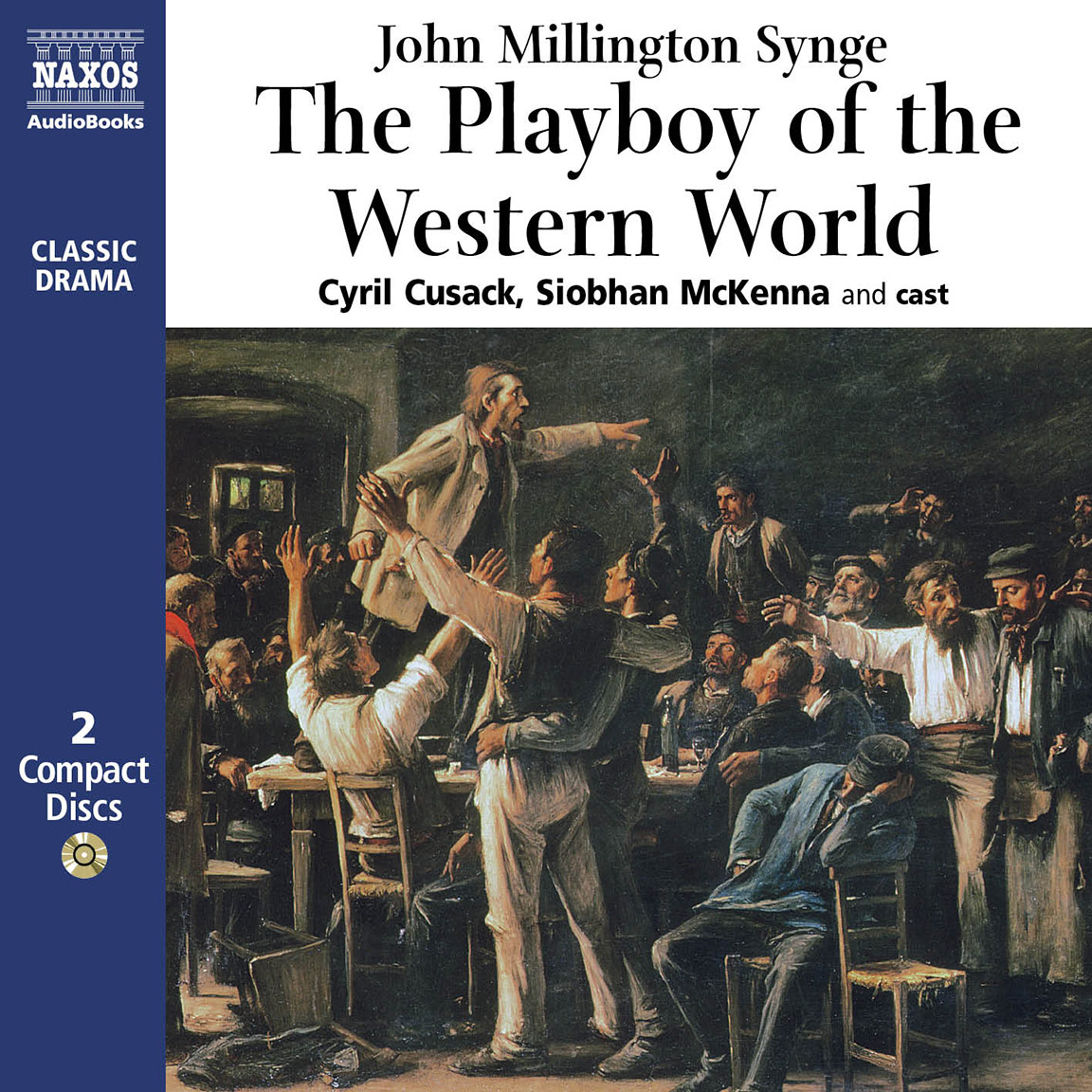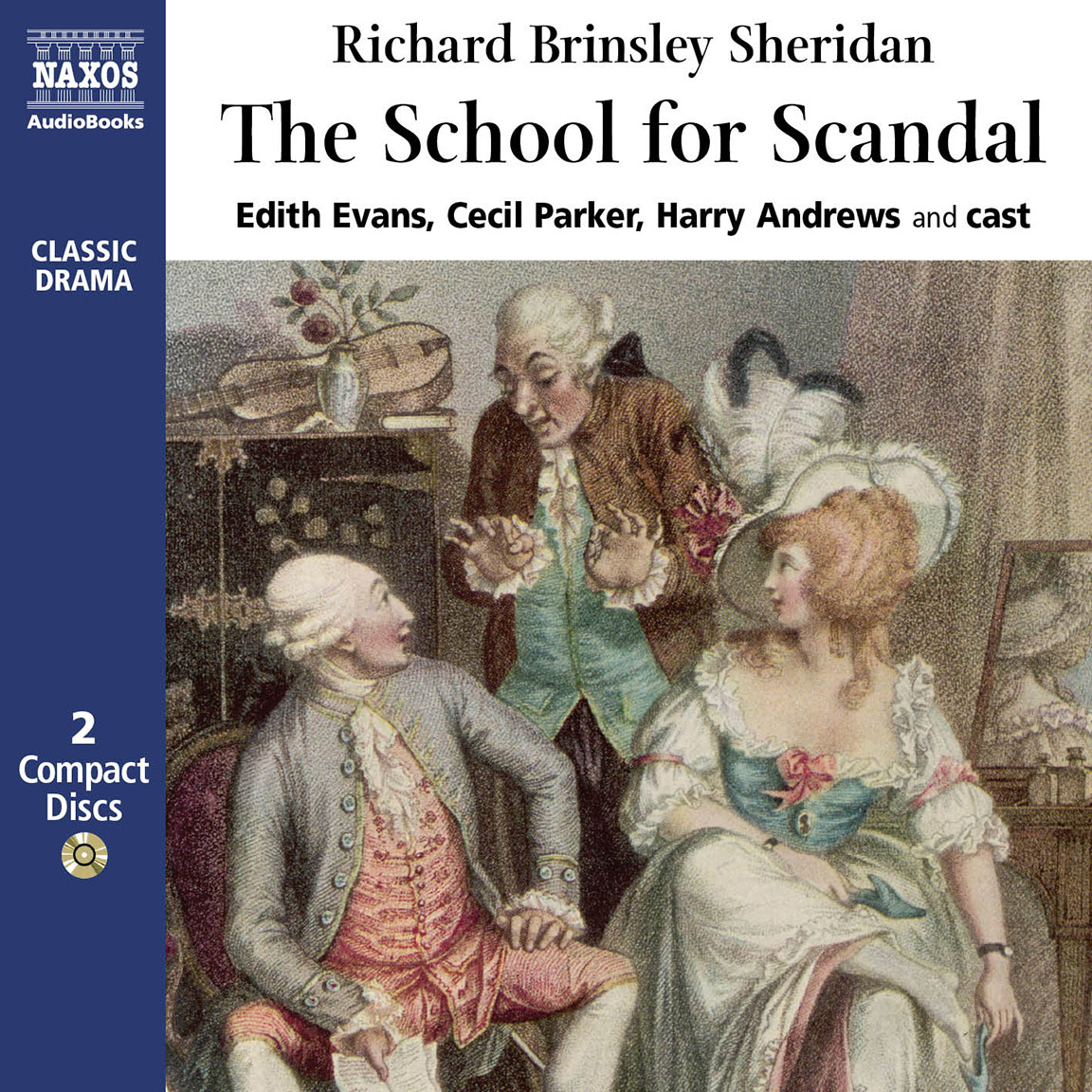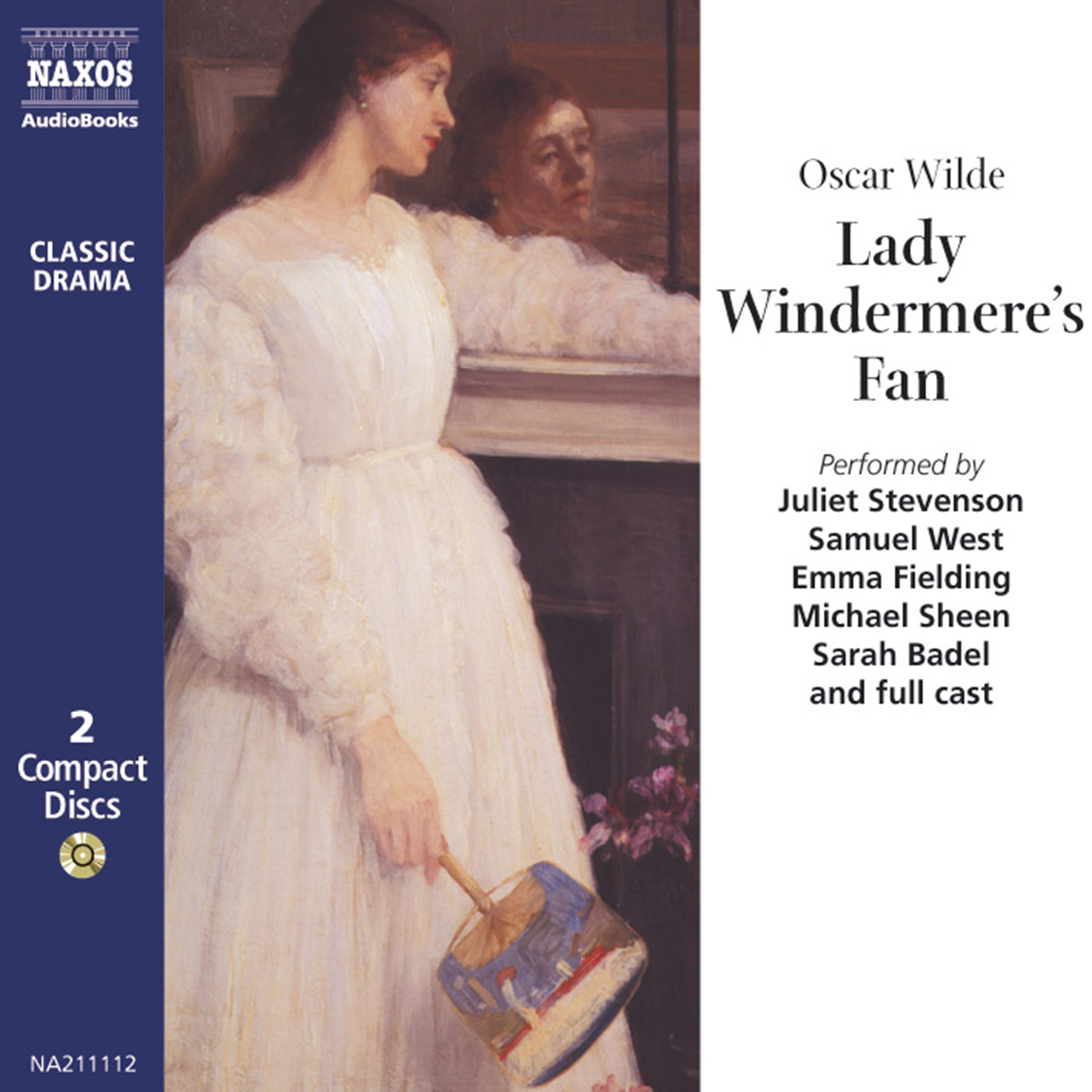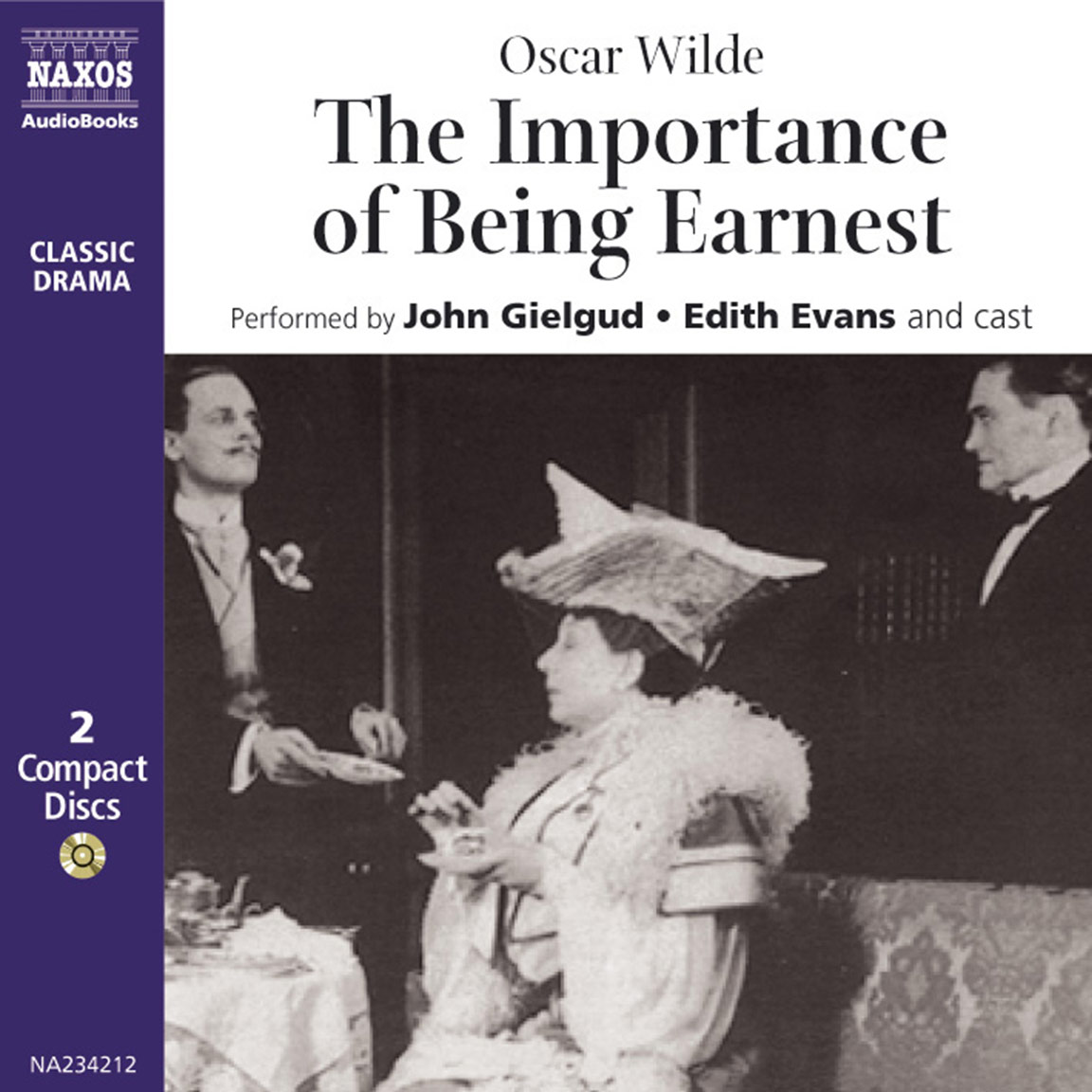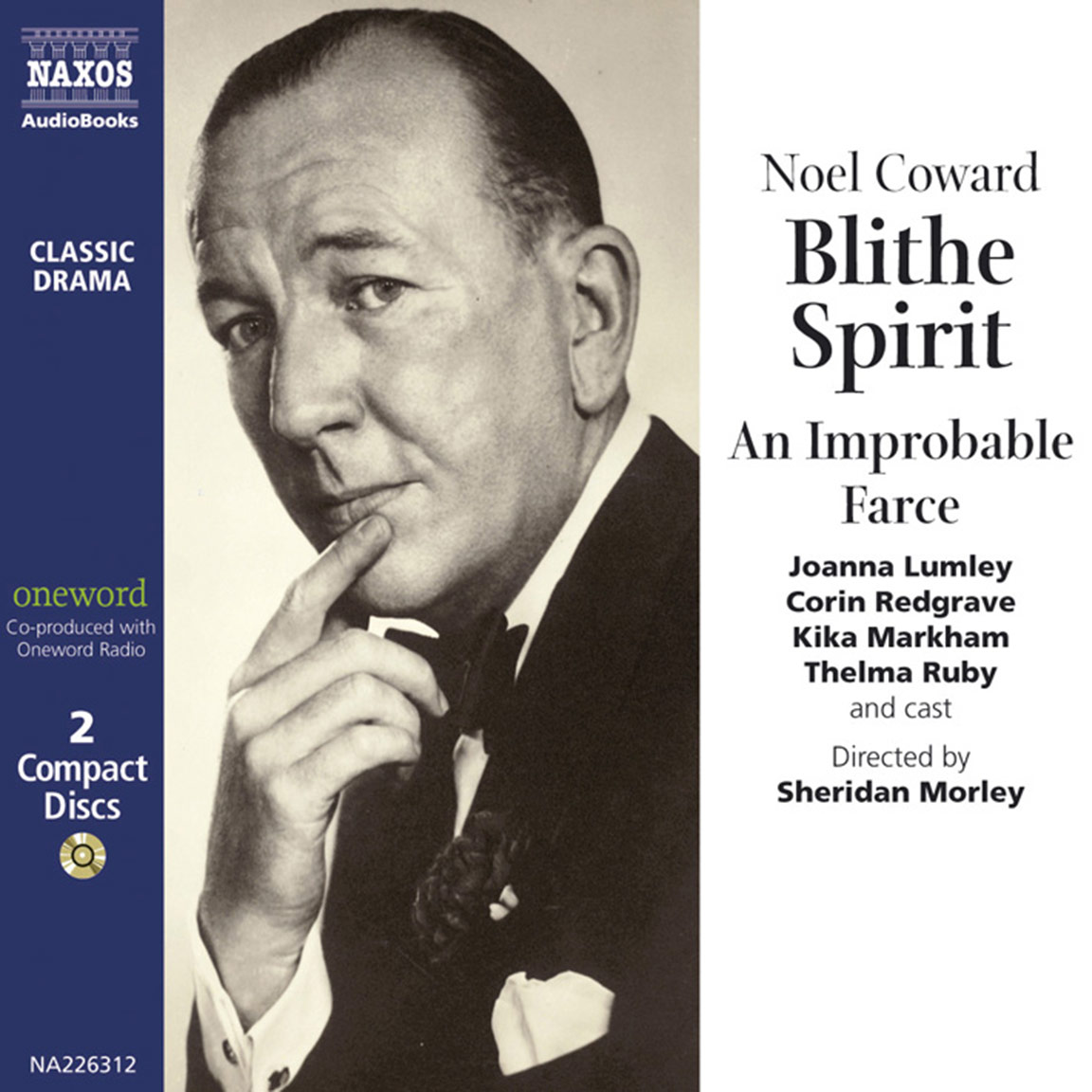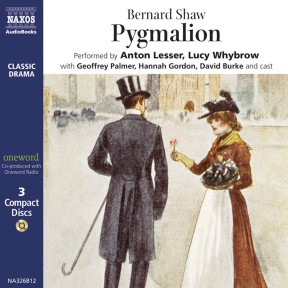
Audio Sample
George Bernard Shaw
Pygmalion
Directed by John Tydeman
Performed by Anton Lesser, Lucy Whybrow, Geoffrey Palmer, Hannah Gordon, David Burke, Kate Binchy, Frances Jeater, Charlie Simpson, Fritha Goodey, Daniel Philpott, Ben Warwick & Denys Hawthorne
unabridged
Pygmalion remains one of the most popular stories – but mainly in the medium of the musical; the evergreen My Fair Lady. But much of the charm and wit comes from the words and timing in Shaw’s original play. Here are the characters of Professor Higgins, his friend Colonel Pickering, and their charge, Eliza Doolittle. Directed by John Tydeman, this delightful comedy is presented in its original play version, with the extended narrations setting the background and concluding the drama – a device perfectly suited to Audiobook.

-
Running Time: 2 h 37 m
More product details
Digital ISBN: 978-962-954-698-4 Cat. no.: NA326812 Download size: 74 MB Produced by: Nicolas Soames Directed by: John Tydeman Edited by: Mike Etherden BISAC: DRA003000 Released: January 2002 -
Listen to this title at Audible.com↗Listen to this title at the Naxos Spoken Word Library↗
Due to copyright, this title is not currently available in your region.
You May Also Enjoy
Cast
- Anton Lesser
- Professor Higgins
- Geoffrey Palmer
- Colonel Pickering
- Lucy Whybrow
- Eliza Doolittle
- Hannah Gordon
- Mrs Higgins
- David Burke
- Doolittle
- Kate Binchy
- Mrs Pearce
- Frances Jeater
- Mrs Eynsford Hill
- Charles Simpson
- Freddie Eynsford Hill
- Fritha Goodey
- Clara Eynsford Hill
- Daniel Philpott
- Gentleman 1
- Ben Warwick
- Gentleman 2
- Denys Hawthorne
- Narrator
Reviews
Winner of AudioFile Earphones Award
Probably Shaw’s most endearing play and the basis (and libretto) for My Fair Lady, this witty comedy concerns an expert linguist who, on a bet, seeks to pass off a flower girl as a duchess. Naxos’s production wisely incorporates a narrator who sets the scene with Shaw’s own stage directions, as he expanded them for publication. Under John Tydeman’s confident direction, the excellent cast fully realizes the intelligent humor and persuasive characterizations of the text. My favorite is Geoffrey Palmer as Colonel Pickering, foil and sidekick of Henry Higgins. Perhaps Anton Lesser’s voice is a bit flimsy for the overbearing professor, but not so his acting. His Eliza, Lucy Whybrow, could be less irritating and more sympathetic. But otherwise, the ensemble provides a splendidly satisfying rendition.
Y.R., AudioFile
Booklet Notes
INVITATION TO A SOUND PYGMALION
‘I liked the play. It was funny – wot I understood of it …I wish e’d found a better title. Who’s ter know that Pygmalion ‘ad anyfink ter do with a flower girl? ‘E mite ’ave called it From Flower Girl to Duchess. We should ’ave known wot it wos abaht then.’
Thus said Eliza Keele, a Charing Cross flower girl, as rather patronisingly trans- cribed from an interview with the Daily Express which had treated her to a ticket to the play to test her reactions.
Eliza Keele had a point. Just as the creators of the unauthorised musical version of Shaw’s Arms And The Man had changed its title to The Chocolate Soldier, so those responsible for Pygmalion – The Musical had altered the title to My Fair Lady. Anodyne, uninformative, possibly inaccurate, but more attractive to the mass ticket-buying audience.
If Pygmalion then why not Galatea? Who? In ancient Greek mythology Galatea was the name of a beautiful ivory statue with which its sculptor, the mysoginist King of Cyprus, Pygmalion by name, fell deeply in love. Taking pity on him the goddess Aphrodite blew breath into the statue and made it come alive as a beautiful woman. Pygmalion then married his own creation, which was something Shaw insisted did not occur between the creator, Professor Higgins, and the created, Miss Doolittle, in his play.
I suppose the play could have been called ‘Pygmalion and Galatea’, but two Greek names would surely have been too heavy for a lightish, but serious, romantic comedy and the emphasis was intended to be on the artist rather than the model. The title of any successful work rapidly achieves its own easy currency as can be seen from the long- running musical Les Misérables and the even longer-running play called The Mousetrap. What is in a name once success has kissed it?
Pygmalion also entered our language as a replacement for the sanguinary adjective Eliza had used which had so shocked the 1914 First Night West-End audience that the show stopped ‘for a full minute, till the audience had done laughing.’ As a child I can remember the adults saying ‘not Pygmalion likely’ instead of ‘not bloody likely’. In the film version of the musical the shock effect had, in the 1960s, to be achieved by the expression ‘move your bloody arse’ shouted towards the rear end of a horse at the Royal Ascot race meeting.
Needless to say, there was no Royal Ascot scene in the original production which opened at Her Majesty’s Theatre on 11 April 1914, having been premiered in a German translation the previous year in Vienna. Sir Herbert Beerbohm Tree, the actor manager at Her Majesty’s, rather wished there had been such a scene. He tried to persuade Shaw to ‘open up’ the play. He was for spectacle while Shaw, who also directed the play, was for realism. Despite Tree’s somewhat hammy acting, Shaw’s rather wooden direction and the fact that Mrs Patrick Campbell herself admitted to being 25 years too old for Liza Doolittle, the waif flower girl, the play was an overnight success. This says a great deal for the strength of the text.
Shaw, who had taken to writing plays at the age of 42, was 56 when Pygmalion appeared and it gave him financial security for the first time in his life. Although the outbreak of war in August 1914 prevented the projected lengthy tour, the publication, in 1916, brought in more money by the sale of books than royalties would have done in those days, even with long-running plays.
Pygmalion became one of the world’s best-known and most popular works in a variety of forms and numerous translations. Film versions were made in Dutch and in German before Anthony Asquith’s 1938 English version with a script by GBS, for which he received an Oscar. It broke all previous box-office records and ‘won the hearts of audiences and the plaudits of critics all over the world’. It has been recorded for records, televised more than once and has had innumerable airings on radio. It is a play of debate and of ideas and, as Shaw himself said in turning down a proposal to make a musical of it, ‘it has its own music in the language’. There are great arias in it, certainly from Higgins, Liza and Doolittle.
Six years after Shaw’s death in 1950, My Fair Lady appeared on Broadway where it ran for six-and-a-half years. In 1957 it opened at Drury Lane, where it ran for over five years. In 2002 an RNT production returned, in transfer, to Drury Lane. The setting-up of a national theatre was a project dear to Shaw’s heart and he would be gratified by the treatment he has received on the Thames’ South Bank, London.
Then, of course, there is the film version of the Alan Jay Lerner and Frederick Loewe musical version of the stage version. It has to be confessed that the majority of people will have become acquainted with the story via the film My Fair Lady starring Audrey Hepburn and Rex Harrison. Rex Harrison put so profound a stamp on the role of Professor Higgins (as Edith Evans did with Lady Bracknell in Oscar Wilde’s The Importance of Being Earnest) that it is hard for any actor to follow him or to escape his rhythm of speech. Yet it is to be doubted if this really was the Higgins which Shaw had in mind. His stage description says that he should be ‘an appetising sort of man of forty or thereabouts… He is of the energetic, scientific type… interested in anything that can be studied as a scientific subject.’
But the musical catches the essence of Higgins’ character, just as its very faithful book and lyrics capture, explore and even promote the essence of the original stage- play. So cleverly do the lyrics emerge out of the text that during the rehearsals for this audio-recording the cast and crew would slide easily into song: ‘Why can’t the English teach their children how to speak?’; ‘Lots of chocolates for me to eat; lots of coal making lots of heat’. And then there are the elocution lessons: ‘By George she’s got it!’; (‘Hertford, Hereford and Hampshire, Hurricanes Hardly Happen’ and ‘the rain in Spain stays mainly in the plain’ are not only extensions of Shaw’s text, they are actually inventive improvements on it!). Then there is Higgins’ line in the play text ‘And I have grown accustomed to your voice and appearance. I like them rather’. Cue for song: ‘I’ve grown accustomed to her face, etc.,etc.’
The tension in Shaw is between mind and instinct, the joker, and the serious man of letters, the didactic pamphleteer and the entertainer. These paradoxes surround the contention that has always existed about the ambiguous ending. Does she, or doesn’t she, marry Higgins? After all, Galatea married Pygmalion or, rather, the other way round.
When Tree played the ending in the ambiguous 1912 original text, he performed the ending the punters really wanted. Shaw was furious: ‘Your ending is damnable. You ought to be shot’, he wrote. Tree retorted, ‘My ending makes money. You ought to be grateful.’ Commercially Tree was right, as were Lerner and Loewe. Artistically one bows to Shaw. After all, Higgins, Liza, Doolittle, Pickering, Mrs Higgins and the Eynsford-Hills are Shaw’s creations, he’s their Pygmalion.
There is nothing new in the rags-to-riches story, in Cinderella and her Prince. But Cinders is a Baron’s daughter, Liza a common dustman’s (well, a fairly uncommon dustman in another sense). She is a doll who speaks beautifully, knows how to move and to wear fine clothes. Although a certain spirit has been released, a Life Force generated, she is, after six months’ tutelage, a lady in appearance only. She still seeks education, development of character. Shaw insists that it is not a fairy tale. Higgins ‘is not Eliza’s lover… their marriage would have been a revolting tragedy’.
Psychologically Shaw knew what he was talking about. Some years ago I took my god-daughter, then aged about 15, to see the musical with its happy ending. She had not encountered the story before in any form. She had loved it, except for the ending. ‘Eliza would never have come back,’ said young Modern Woman. How Shaw would have shouted in glee! So angry and insistent was he that he changed the ending slightly for the 1916 published edition and added an Epilogue which explains what happens to the characters after the last spoken words of the play in the ‘authorised version’.
Higgins: ‘She’s going to marry Freddy. Ha! Ha! Freddy! Freddy!’ (he roars with laughter as the play ends).
This Epilogue, delivered by the well-known Shaw impersonator, Denys Hawthorne, appears on the final disc of this recording.
Shaw calls the play a Romance ‘because it is the story of a poor girl who meets a gentleman at a church door and is transformed by him into a beautiful lady. That is what I call a romance.’ Shaw thought that all plays should be about Ideas, and Pygmalion is no exception. The play, at times, takes the form of a debate. As a Fabian Socialist, Shaw was critical of middle- class society and its values. He realised that people were judged, socially, by the way they spoke and by the clothes they wore. As the Daily Mail critic wrote in his review of the play’s first night, ‘It is a comedy of modern manners, tinged with social satire… laughter reigns supreme.’
Some of his earlier plays suffered from ‘too easily recognisable a didactic purpose’. As with the much later popular entertainment play, The Millionairess (remember the movie with Sophia Loren and Peter Sellers and the Bom-diddy-bom-diddy- bom-bom-bom heartbeat?), Shaw uses an abundance of sugar-coating to conceal the bitter pill of social criticism at the centre of the piece.
All works of art have a trigger. In the case of Pygmalion it was Shaw’s fascination with phonetics and his desire to reform the English alphabet, allied to the death of Henry Sweet, a prominent phonetician, in 1912, the year in which he wrote the play. His own attempts to render cockney speech phonetically are dire and, mercifully, he gives up the challenge after a few speeches of text. Mrs Patrick Campbell found the cockney dialect ‘very difficult’ and she probably got about as close to rendering it as did the notorious Dick Van Dyke in Mary Poppins!
None of the problems of performance or production worried the Daily Telegraph reviewer of 1914. Shaw’s genius conquered all. ‘The play as a whole is a joyful piece of work. There is an abundant vigour in it, and the best things come with such force and the worst have so much spirit, and the thing marches on with such gaiety that you cannot resist it, nor do you want to. It is a great joke … it debates and dallies with all sorts of solemn subjects in the midst of its fun … and goes gaily on.’
It invites us to laugh and to think. Accept the author’s invitation – and ours.
Notes by John Tydeman
In the playscript, Bernard Shaw provided a preface.
PREFACE TO PYGMALION
A Professor of Phonetics
As will be seen later on, Pygmalion needs not a preface, but a sequel, which I have supplied in its due place. The English have no respect for their language, and will not teach their children to speak it. They spell it so abominably that no man can teach himself what it sounds like. It is impossible for an Englishman to open his mouth without making some other Englishman hate or despise him. German and Spanish are accessible to foreigners: English is not accessible even to Englishmen. The reformer England needs today is an energetic phonetic enthusiast: that is why I have made such a one the hero of a popular play. There have been heroes of that kind crying in the wilderness for many years past. When I became interested in the subject towards the end of the eighteen-seventies, Melville Bell was dead; but Alexander J. Ellis was still a living patriarch, with an impressive head always covered by a velvet skullcap, for which he would apologize to public meetings in a very courtly manner. He and Tito Pagliardini, another phonetic veteran, were men whom it was impossible to dislike. Henry Sweet, then a young man, lacked their sweetness of character: he was about as conciliatory to conventional mortals as Ibsen or Samuel Butler. His great ability as a phonetician (he was, I think, the best of them all at his job) would have entitled him to high official recognition, and perhaps enabled him to popularize his subject, but for his Satanic contempt for all academic dignitaries and persons in general who thought more of Greek than of phonetics. Once, in the days when the Imperial Institute rose in South Kensington, and Joseph Chamberlain was booming the Empire, I induced the editor of a leading monthly review to commission an article from Sweet on the imperial importance of his subject. When it arrived, it contained nothing but a savagely derisive attack on a professor of language and literature whose chair Sweet regarded as proper to a phonetic expert only. The article, being libelous, had to be returned as impossible; and I had to renounce my dream of dragging its author into the limelight. When I met him afterwards, for the first time for many years, I found to my astonishment that he, who had been a quite tolerably presentable young man, had actually managed by sheer scorn to alter his personal appearance until he had become a sort of walking repudiation of Oxford and all its traditions. The future of phonetics rests probably with his pupils, who all swore by him; but nothing could bring the man himself into any sort of compliance with the university, to which he nevertheless clung by divine right in an intensely Oxonian way. I daresay his papers, if he has left any, include some satires that may be published without too destructive results fifty years hence. He was, I believe, not in the least an ill-natured man: very much the opposite, I should say; but he would not suffer fools gladly. Those who knew him will recognize in my third act the allusion to the patent Shorthand in which he used to write postcards, and which may be acquired from a four-and-six-penny manual published by the Clarendon Press. The postcards which Mrs. Higgins describes are such as I have received from Sweet. I would decipher a sound which a cockney would represent by zerr, and a Frenchman by seu, and then write demanding with some heat what on earth it meant. Sweet, with boundless contempt for my stupidity, would reply that it not only meant but obviously was the word Result, as no other Word containing that sound, and capable of making sense with the context, existed in any language spoken on earth. That less- expert mortals should require fuller indications was beyond Sweet’s patience.
Therefore, though the whole point of his ‘Current Shorthand’ is that it can express every sound in the language perfectly, vowels as well as consonants, and that your hand has to make no stroke except the easy and current ones with which you write m, n and u, l, p and q, scribbling them at whatever angle comes easiest to you, his unfortunate determination to make this remarkable and quite legible script serve also as a Shorthand reduced it in his own practice to the most inscrutable of cryptograms. His true objective was the provision of a full, accurate, legible script for our noble but ill-dressed language; but he was led past that by his contempt for the popular Pitman system of Shorthand, which he called the Pitfall system. The triumph of Pitman was a triumph of business organization: there was a weekly paper to persuade you to learn Pitman: there were cheap textbooks and exercise books and transcripts of speeches for you to copy, and schools where experienced teachers coached you up to the necessary proficiency. Sweet could not organize his market in that fashion. He might as well have been the Sybil who tore up the leaves of prophecy that nobody would attend to. The four-and- six-penny manual, mostly in his lithographed handwriting, that was never vulgarly advertized, may perhaps some day be taken up by a syndicate and pushed upon the public as The Times pushed the Encyclopaedia Britannica; but until then it will certainly not prevail against Pitman. I have bought three copies of it during my lifetime; and I am informed by the publishers that its cloistered existence is still a steady and healthy one. I actually learned the system too several times; and yet the shorthand in which I am writing these lines is Pitman’s. And the reason is, that my secretary cannot transcribe Sweet, having been perforce taught in the schools of Pitman. Therefore, Sweet railed at Pitman as vainly as Thersites railed at Ajax: his raillery, however it may have eased his soul, gave no popular vogue to Current Shorthand. Pygmalion Higgins is not a portrait of Sweet, to whom the adventure of Eliza Doolittle would have been impossible; still, as will be seen, there are touches of Sweet in the play. With Higgins’s physique and temperament, Sweet might have set the Thames on fire. As it was, he impressed himself professionally on Europe to an extent that made his comparative personal obscurity, and the failure of Oxford to do justice to his eminence, a puzzle to foreign specialists in his subject. I do not blame Oxford, because I think Oxford is quite right in demanding a certain social amenity from its nurslings (heaven knows it is not exorbitant in its requirements!); for although I well know how hard it is for a man of genius with a seriously underrated subject to maintain serene and kindly relations with the men who underrate it, and who keep all the best places for less important subjects which they profess without originality and sometimes without much capacity for them, still, if he overwhelms them with wrath and disdain, he cannot expect them to heap honors on him. Of the later generations of phoneticians I know little. Among them towers the Poet Laureate, to whom perhaps Higgins may owe his Miltonic sympathies, though here again I must disclaim all portraiture. But if the play makes the public aware that there are such people as phoneticians, and that they are among the most important people in England at present, it will serve its turn. I wish to boast that Pygmalion has been an extremely successful play all over Europe and North America as well as at home. It is so intensely and deliberately didactic, and its subject is esteemed so dry, that I delight in throwing it at the heads of the wiseacres who repeat the parrot cry that art should never be didactic. It goes to prove my contention that art should never be anything else. Finally, and for the encouragement of people troubled with accents that cut them off from all high employment, I may add that the change wrought by Professor Higgins in the flower girl is neither impossible nor uncommon. The modern concierge’s daughter who fulfils her ambition by playing the Queen of Spain in Ruy Blas at the Theatre Francais is only one of many thousands of men and women who have sloughed off their native dialects and acquired a new tongue. But the thing has to be done scientifically, or the last state of the aspirant may be worse than the first. An honest and natural slum dialect is more tolerable than the attempt of a phonetically untaught person to imitate the vulgar dialect of the golf club; and I am sorry to say that in spite of the efforts of our Academy of Dramatic Art, there is still too much sham golfing English on our stage, and too little of the noble English of Forbes Robertson.
